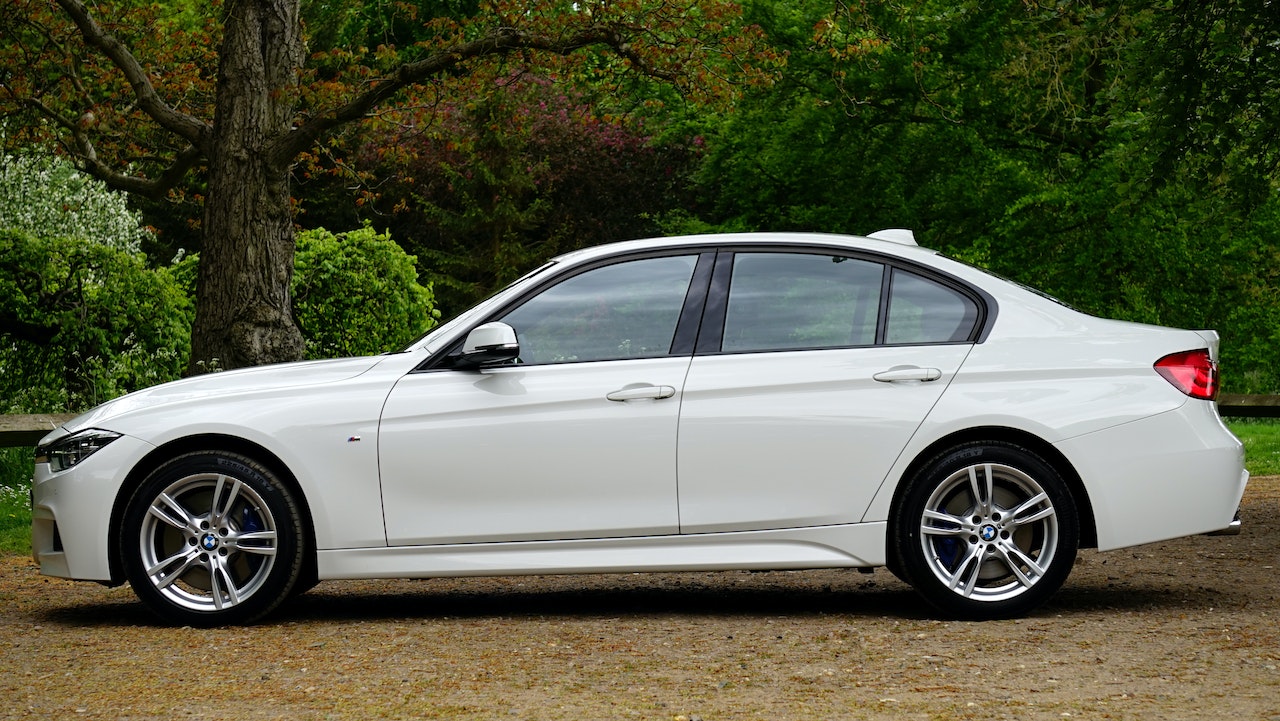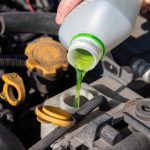Many times you have to stop your car at some points with its engine running. It usually happens when you have to stop at a red light signal or wait for someone. Your car is said to be idling when you stop or park it and keep the engine running. It is required to keep the engine running as you only have to wait for a minute or two.
However, sometimes your car overheats when idling. You may not consider it a big problem at the start, but soon realize that it is destroying the engine of your vehicle. Therefore, you need to fix the overheating issue immediately.
You cannot fix the problem without knowing and eliminating its roots. Therefore, you first need to find the causes of car overheating when idle. Don’t worry, you don’t have to look for the reasons and fixes for car overheating anywhere else. We are here to guide you with all the necessary information.
Let’s move ahead and explore the reasons your car overheats when idling:
Reasons Your Car Overheats When Idle:
There are numerous reasons behind cars overheating when idling. The following are the most common ones and can lead to your vehicle’s engine destruction.
Coolant Level
Coolant is present in your car to keep its temperature low. It doesn’t allow the engine to overheat in any conditions. However, when the coolant level increases or decreases too much, it becomes one of the leading reasons for engine overheating.
There is a minimum and maximum limit of coolant in your vehicle. If it is below the minimum level, it can result in overheating. The same is the case when the coolant level is higher than the maximum limit. Min or max limits are present on the coolant bottle present in your car.
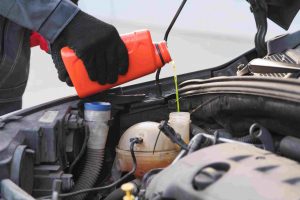
Air In The Coolant System
This reason is not that common and usually happens when you have recently repaired your car’s coolant system. Improper fixing of the coolant system, some loose screws, etc. are the main reasons behind the air in the system.
Sometimes, a slight leak or hole may also let air enter the coolant system. Even if you don’t close the cap of the bottle tightly, it also leads to the entry of air into the system. Your car runs hot when idle due to pressure created by this entrapped air.
Coolant Leakage
Coolant bottles can easily get punctured or leaked due to several reasons. It results in the leakage of coolant from your vehicle. When your car loses its coolant constantly, it results in overheating. Coolant level decreases rapidly and your car starts overheating. You need to keep on checking for any leakages in the bottle.
Checking the coolant level and area under the vehicle after parking helps you to know if the coolant is leaking. You can also check it when the gauge is over slightly over the middle, mainly towards the red area.
Damaged Thermostat
The thermostat is present in every car and is a major part of the coolant system. Its function is to regulate the flow of coolant to the engine to maintain its temperature. The flow depends on the engine’s temperature and its working.
When you are not driving your car and the engine is off, the thermostat too remains closed and doesn’t allow the flow of coolant. Similarly, it keeps the flow maximum when the engine becomes hot. However, a bad or damaged thermostat may be stuck in the opening or closed position.
Things become worse if it is stuck in a closed position. It doesn’t allow the coolant to pass and regulate temperature. The vehicle engine overheated as a result of this bad thermostat.
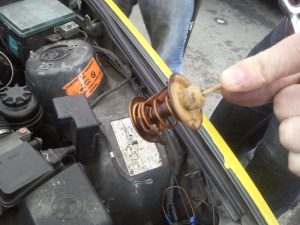
Serpentine Belt or Fan Belt
It is the problem with those cars only that have a belt-based cooling fan instead of an electric one. The serpentine belt or usually called the fan belt is stranded among the two pulleys and makes the fan run and cool your vehicle.
When it gets cracked or worn out, it does not allow the fan to run properly. So, your car’s engine doesn’t get cooled. It may result in the car overheating as the fan keeps on cooling during driving but struggles due to a damaged belt when idling.
To check the fan belt, you simply have to inspect the inner side of the belt by rotating it. Any cracks on it reflect that the belt is unable to do its job perfectly.
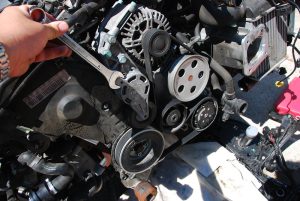
Reverse Fan Spin
Almost all types of vehicles or cars have cooling fans which are usually present behind and in front of the radiators. Both types of fans have specific spinning direction and function such as the front fans are responsible to push air towards the engine, while the job of the fans present behind the radiator is to pull the air towards the engine.
When they fail to maintain their direction or start spinning in the opposite direction to their actual direction, they lose their effectiveness. It results in reduced cooling efficiency and car overheating when idle.
It can happen due to multiple reasons but the most common reason is the reverse electrical connection of cooling fans.
Non-Functional Thermo Switches
Thermo switches are responsible for running electric fans present in your vehicle to keep the temperature low. The fans are required when the coolant system reaches a certain temperature limit. However, when thermo switches get damaged or become non-functional, they may not be able to turn on the fans.
As a result, the temperature keeps on rising and results in overheating. It results in the car overheating only when parked because during driving the airflow remains higher and the temperature of the system remains moderate.
Clogged Radiators
Radiators are among the most essential parts of the cooling system. Its function is to maintain the temperature by cooling things down. However, with time it may get clogged. Improper cleaning, damage during accidents, filth, etc. are the leading reasons behind clogged radiators.
As a result, it fails to work efficiently and the temperature keeps on increasing. The radiator’s main function is to keep the car cool when parked or idle. So, your car overheats when idle due to clogging or other defects in radiators.

Blocked Exhaust
One of the most common reasons for a car to overheat is the blocked exhaust. It is one of the most important parts of the car engine system which works to ensure smooth and complete emission of the burning gasses from the car engine.
Due to excessive accumulation of dust, chemical fumes, and rest it becomes blocked and fails to send poisonous gasses away from the engine especially when idling. It results in reduced cooling efficiency of the engine and you can easily notice that your car is running hot.
Higher Proportion Of Ethylene Glycol
An effective cooling solution or a perfect mixture of water, ethylene glycol, and other additives is highly crucial for the proper functioning of the car cooling system and engine to cool down. Usually, higher water proportions provide exceptional cooling performance while a cooling system with a higher ethylene glycol level is considered more protective. Therefore, a 50/50 solution is used in most cars’ cooling systems.
When the ethylene glycol proportion becomes extremely higher than water, it results in reduced efficiency of the cooling system and overheating of the engine.
Water Pump Problems
The water pump in your car is the main thing to maintain the temperature of the engine. The function of the water pump is to circulate the coolant from the radiator to the whole engine. As a result, coolant can keep the temperature low. However, when it gets defective, it may fail to pump coolant from the radiator to the engine.
This could result in the car running hot when idle. It doesn’t have a lot of impact when the vehicle is running as airflow is enough to keep the temperature maintained.
AC Compressor or Steering Pump
These two things are directly linked with an engine with the help of a serpentine belt. So any defect in them directly impacts the belt and the engine. As a result, the belt may fail to run the fan when required. It results in overheating of the engine and can result in some irreversible damage.
If you observe there is no problem with the coolant system, but still, your car is getting overheated, make sure to check these things.
Troubleshooting Overheating: Expert-Approved Fixes to Keep Your Car Running Cool
A car overheats when parked or idle due to the aforementioned reasons. During driving, the above reasons don’t play much role as the airflow keeps the system cool. To avoid overheating engine damage, you need to fix this problem as soon as possible. Following are some of the top fixes to prevent engine damage.
Maintain Coolant Level
The most common reason for car heating is low coolant level. Therefore, you need to replace it or refill the coolant in the bottle to maintain its level. For a quick fix to the problem, you must always keep an extra bottle of coolant in your vehicle. It allows you to maintain the level anytime you want.
You just need to stop your vehicle and put coolant into the bottle. Driving with low coolant is not a good idea. It can result in irreversible damage to your car’s engine. So, you must avoid it.

Turn Off the AC
If you observe the engine temperature rising at a very high speed while parking the car, you need to turn off the AC. Gauge quickly entering the red light or notification light is the main sign of a vehicle overheating rapidly. Turning off the AC may bring the temperature down as AC puts a lot of strain on the engine, turning it off helps the engine to recover a bit and the temperature to low down.
Turn On The Heater
It may sound weird but it’s an effective solution to lower the temperature and save your engine’s life. It is a quick fix that works most of the time. You have to turn the heater on at full blast. The heater withdraws heat from the engine and provides it in the car’s cabin. This withdrawal of heat helps your car’s engine to cool down within a few minutes.
Turn off The Engine
If none of the aforementioned fixes works, you need to get out of the car and turn the engine off. Lift the bonus so your engine can get cooled in the open air. However, you should do so only when you manage to pop the hood from the driver’s seat.
Never try to lift it with bare hands as it is hot and can burn your hands. Wait for at least 30 minutes and check if the temperature gets lowered or not. It is required to do so, otherwise, your car’s engine may be destroyed completely due to overheating.
Keep Your Car Maintained
Focusing on the overall maintenance of your car can help you avoid plenty of problems including car overheating. Regular maintenance of the coolant system and other parts helps you to check for any serious issues and you can fix them ahead of time. Follow auto tips present in your car’s manual to keep it maintained over a long period.
Take Your Car To a Mechanic
The above fixes are not permanent especially when the reasons are related to radiators and thermostats. Therefore, the best solution is to take your car to automobile mechanics. They have experience in fixing all these issues. They can eliminate the main problem and give you some tips to avoid this problem again. Always take your vehicle to a reliable mechanic who knows how to fix the problem.
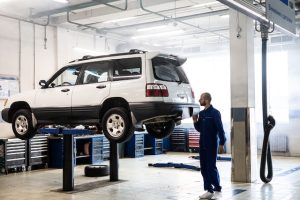
FAQs:
What Causes a Vehicle To Overheat?
Several reasons cause a car to overheat. Low coolant levels, damaged coolant systems, nonfunctional thermo switches, defective radiators, etc. are among the leading causes of vehicle overheating.
Can Low Oil Cause Overheating?
Yes! Low oil levels in the engines result in issues. It is due to the strain low oil puts on the engine.
How Far Can You Drive an Overheated Car?
It is generally advised against driving an overheated car for an extended duration, although it is challenging to determine an exact distance. The recommendation is to promptly address the issue and avoid prolonged driving to prevent potential damage to the engine.
How To Cool Down an Overheated Vehicle Engine?
Turning off the AC, adding coolant, turning the engine off, etc. are the best ways to cool down your engine. All these steps reduce stress and lower the temperature.
How Long Does It Take an Engine To Cool Down?
It takes almost 30 minutes for an engine to get cooled enough and return to a safe condition.
Final Words
An overheated engine during idling is not a good sign. It hints towards the irreversible damage to the engine and coolant system of your car. You can use this guide to identify the root cause behind the overheating when idling and possible solutions to fix it adequately.
For professional inspection and permanent solution, you can send your car to a creditable service station. It will reduce your burden, save time, and protect you from damages due to manual errors.
Last Updated on May 26, 2023 by admin

Mac is an Automotive enthusiast. He owns up to 15 vehicles. He deals with Auto problems and shows his skill to Car owners who are seeking any type of Car help.

